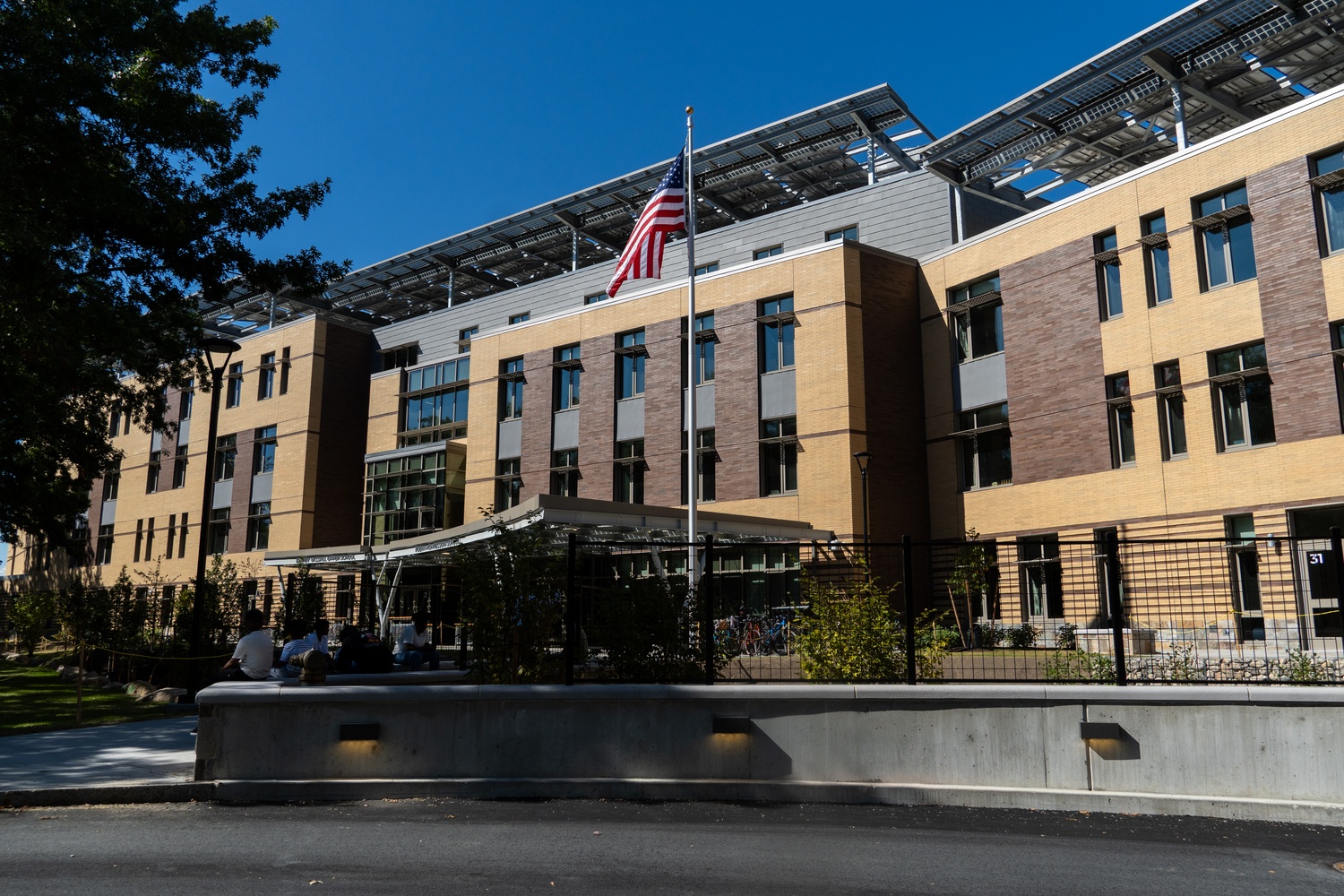
News
Summers Will Not Finish Semester of Teaching as Harvard Investigates Epstein Ties

News
Harvard College Students Report Favoring Divestment from Israel in HUA Survey

News
‘He Should Resign’: Harvard Undergrads Take Hard Line Against Summers Over Epstein Scandal

News
Harvard To Launch New Investigation Into Epstein’s Ties to Summers, Other University Affiliates

News
Harvard Students To Vote on Divestment From Israel in Inaugural HUA Election Survey
Descendant of Darby Vassall Leads Tour To Recognize Vassall’s Life, Cambridge’s History of Slavery

Denise Washington, a fourth-generation descendant of a man who was enslaved by the Harvard-affiliated Vassall family in the 18th century, launched a historical tour of Cambridge on Sunday to commemorate him and visit sites that were significant to his life.
The tour — called the “In Search of Darby Vassall Tour” and held on the 164th anniversary of Vassall’s death — was designed and led by Washington and included stops at Vassall’s tomb, a middle school recently renamed in his honor, and the Longfellow House, where Vassall was born.
“Darby Vassall lives on in this tour through his descendants,” Washington said at the beginning of the bus tour.
The first stop of the tour was the Longfellow House, the Cambridge home of the Vassalls, a prominent New England family who made their fortune through the slave trading industry and owned sugar plantations in the Caribbean.
Darby Vassall was born into enslavement by the white Vassall family and was later separated from his family members and transferred to George Reed, another slave owner.
The white Vassall family, who were loyalists in the American Revolution, fled Cambridge in 1774 and abandoned the Longfellow House. Six-year old Darby Vassall then returned to join his family at the Longfellow House, where many of those enslaved by the white Vassalls remained.
The house became George Washington’s headquarters during the Revolution. But Darby Vassall refused to work without pay for Washington and went on to become a property owner and an advocate for abolition.
Denise Washington designed the tour after having participated in a broader research effort at the Longfellow House — led by Harvard African and African American Studies professor Carla D. Martin and former Harvard & the Legacy of Slavery researcher Caitlin G. DeAngelis — to chronicle the experience of the Black Vassall family who lived at the estate in the 18th century.
Washington joined Martin and DeAngelis’s research teams in their 2024 trips to Jamaica and Antigua, where the white Vassall family enslaved thousands of individuals across their plantations. During Sunday’s tour, Washington recounted her experiences during research travel.
In Antigua, Washington said, she visited the site where Darby Vassall’s mother and uncle cultivated crops for a plantation owned by the Royall family, another slaveowning family with historical ties to Harvard Law School.
The Royalls endowed Harvard’s first law professorship, and their family crest was used on Harvard Law School’s seal until 2016.
On the tour, Washington traced the Royalls’ family history, including how Penelope Royall had married into the Vassall family and later brought Darby Vassall’s mother and uncle to Cambridge, where Darby Vassall was born and would live his entire life.
At the tour’s second stop, Brattle Street, Washington and local tour guide Joel A. Mackall explained the connections between the street’s historical wealthy residents to the Caribbean slave trade in the 18th century.
Other stops on the tour included the newly re-named Darby Vassall Upper School complex and Vassall’s tomb, located at Christ Church in Harvard Square.
“Seeing the locations, the Darby Vassall school named after him, that was nice,” said Anthony R. Vassall, a direct descendant of Darby Vassall who attended the tour. “Just to put some physical places that we could see and be there and have the experience — the emotions of it. That was the nice part of this whole tour.”
At the end of her tour, Washington said the tour is a pilot project that she hopes to continue developing, alongside new programs dedicated to honoring Darby Vassall’s life. In the spring, Washington plans to organize a walking tour of Beacon Hill, where Darby Vassall spent much of his life after gaining freedom from enslavement.
In an interview with The Crimson, Mackall said that he hopes the tour can expand to a larger audience but “not to a level where it’s not as intimate as before.”
Mackall also said that the lessons from Washington’s tour and covering Vassall’s life are necessary to understand the broader history of Boston and Cambridge.
“This local history is essential to these bigger movements of history,” Mackall said.
—Staff writer Sophie Gao can be reached at sophie.gao@thecrimson.com. Follow her on X @sophiegao22.
—Staff writer Alexandra M. Kluzak can be reached at alexandra.kluzak@thecrimson.com.
Want to keep up with breaking news? Subscribe to our email newsletter.
